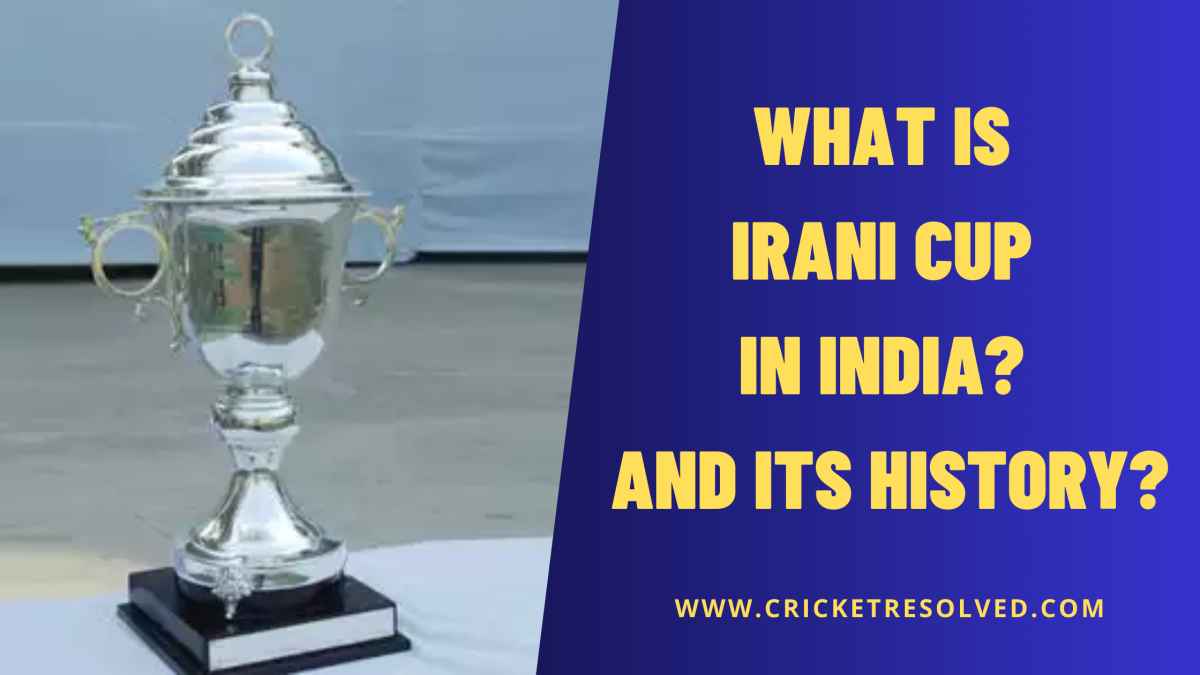
India, a cricket-crazy country, has a vast domestic cricket structure. From senior cricket tournaments to junior tournaments, the Board of Control for Cricket in India (BCCI) organises national-level competitions across formats.
Ranji Trophy, Duleep Trophy, Vijay Hazare Trophy, Cooch Behar Trophy, and many more such tourneys take place across the country. Among them lies one trophy, which is a one-off contest between 2 teams.
Which trophy? – The Irani Cup.
Now what is the Irani Cup? Why is it played? And what is the history behind it?
Let’s glance at the brief history of the Irani Cup. Shall we?
Irani Cup – History
The BCCI started the Ranji Trophy — India’s premier First-Class tournament — way back in November 1934. By the 1959-60 season, the premier red-ball tournament had entered its 25th year.
So, the governing body decided to commemorate the Ranji Trophy’s 25th anniversary with a one-off match between 2 teams at the end of the season.
The 2 teams were Bombay (now Mumbai) — the Ranji Trophy winners of that season — and the Rest of India. The Rest of India squad was made up of players selected from different state Ranji teams, led by Nari Contractor. Polly Umrigar captained the Bombay Ranji team.
Bombay won the Ranji Trophy by beating Mysore in the final by an innings and 22 runs. After 5 days, they were up against the Rest of India squad to play in the one-off Irani Cup match.
It was a First-Class match spread over 3 days, which ended up in a draw. Since Bombay had taken a first innings lead, they clinched the Irani Cup.
Back then, the BCCI had organised the match as a special event to mark the 25 years of Ranji Trophy’s existence. So they didn’t continue with this fixture for the next 2 seasons.
But in the 1962-63 season, the BCCI made it a regular fixture of the Indian domestic cricket structure. For the 1959-60, 1962-63, and 1963-64 seasons, the matches took place at the end of the season.
But from 1965-66 to 2012-13 seasons, the Irani Cup marked the beginning of a new season. Since 2013, the fixture has been moved to the start and end of the seasons due to various reasons.
But why is the fixture called the Irani Cup?
Who is the Irani Cup named after?
The prestigious Irani Cup derives its name from none other than Zal Irani — the man who served as a long-time administrator in the BCCI.
He was BCCI’s treasurer in 2 terms — from the board’s foundation in 1928 to 1945-46 and 1948-49 to 1961-62. Later, in 1966, Irani assumed charge as the BCCI’s president, a post he held till 1969.
When the first Irani Cup match took place in the 1959-60 season, Irani was BCCI’s treasurer. And the trophy for that match was given by Messrs Spencers Ltd, which owned a shopping mall in Chennai.
Interestingly, Irani served as Chairman and Managing Director of Messrs Spencers Ltd. at that time. So it was quite fitting to name the trophy after Zal Irani for his dedicated administrative work in Indian cricket.
Which teams play in the Irani Cup?
The Irani Cup is a one-off First-Class match played between 2 teams. One team — the Rest of India — is a constant in every season, with the best players picked from different state Ranji teams in that season.
The other team is the Ranji Trophy winner of that season, which sees participation of 38 teams. The Ranji Trophy winners and the Rest of India team face off in the 5-day match, with the winner laying their hands on the Irani Cup.
Which team has won the Irani Cup most times?
The Rest of India team has won the Irani Cup the most times, inscribing their name on the trophy over 30 times. Mumbai’s Ranji team stands second with 15 Irani Cup triumphs.
Read Next | The Exponential Growth of T20 Cricket



